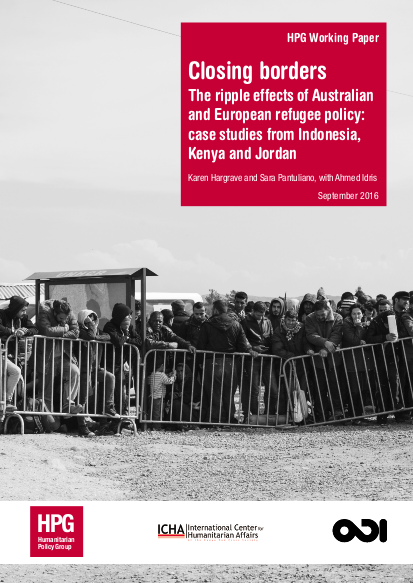
Refugee policies have become increasingly restrictive in recent decades, with industrialised countries violating international norms both in spirit and practice. These negative attitudes are increasingly being replicated in lower-income countries that have hosted large numbers of refugees, often for many years.
This study traces a ‘ripple effect’, looking at how high-income countries have influenced each other’s policies, and consciously cultivated or indirectly fostered negative developments in lower-income states. Case studies on Indonesia, Kenya and Jordan explore the influence of Australian and European refugee and border control policies, as governments in these lower-income countries have enacted increasingly restrictive policies towards refugees.
The case studies are examples of a trend that risks overturning the existing international refugee protection regime. However, it is not too late to reverse this dangerous trajectory. Instead of allowing ripple effects to gain strength, policy-makers in developed countries must understand the global repercussions of their restrictive behaviour and consider its wider implications. In recognising links between refugee policies in different parts of the world, and the potential for countries to influence one another, there is instead an opportunity to actively harness these effects and promote positive emulation of good practices.
